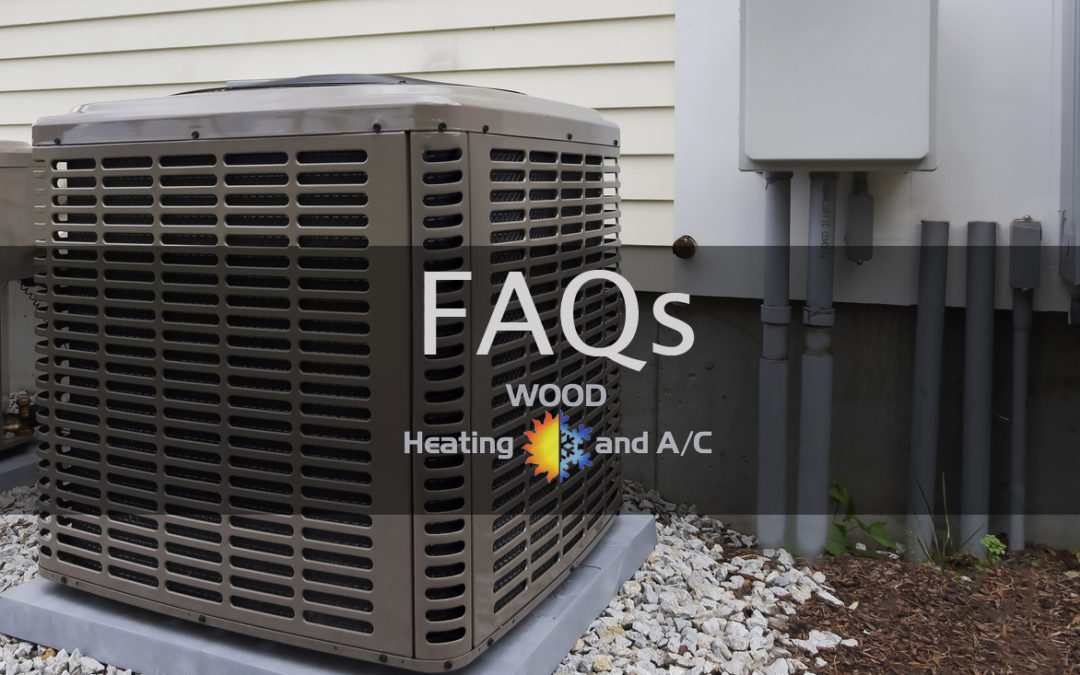Why do I need to change my filter regularly?
The air filter in your heating/cooling system is vital to indoor air quality by filtering unwanted airborne particles. To be effective, the filter should be replaced on a regular basis to ensure maximum filtration and proper air flow through your heating/cooling system. If a loaded (dirty) filter is not changed it restricts the air flow causing operational issues for your unit. In the heating mode, a loaded filter reduces the air flow causing the heat rise in the unit to be greater than designed causing it to trip high temperature limit switches. This can stress the switch, heat exchangers and other system components shortening the life of the unit. In the air conditioning mode, it reduces critical air flow across the cooling coil causing poor performance, reduced air flow and system ‘ice’ up.
How often should I replace my filters?
I recommend to my customers to start out checking the filter every 30 days to see if is loading quickly. From there the customer can gauge the frequency that they need to change the filter. Every home is different due to location, inhabitant’s lifestyles, pets, etc.
In addition to changing my filters, what maintenance should I do on my heater and/or air conditioner?
Most heating systems do not have maintenance items that a homeowner can service outside of the filter. Your central air conditioner can benefit greatly if you keep grass and other obstructions away from the outdoor unit to allow adequate air flow. It is also beneficial to the operation if the customer takes a water hose and washes out the finned surface of the outdoor unit. Road dust, pollen, etc. build-up in between the fins reducing air flow and thermal conductivity required for proper operation.
How often should I have maintenance done on my air conditioner?
We recommend having preventative maintenance done annually. We suggest scheduling this service early in the season during late April early May. This preventative maintenance can help identify any deficiencies in the system and have them corrected prior to the long hot summer months!
How important is it to get the right size of heating and cooling equipment? Is a system with more capacity better?
It is very important! An oversized heating unit will not only cost you more upfront, but the operational costs will be higher. An undersized heating unit although cheaper in purchase price, cost more to operate due to longer ‘on’ times and possibly not reaching set temperatures in colder weather.
As with the heating system, an oversized cooling unit costs more up front and the operating costs will be more. I am frequently asked while on a home evaluation to put in a larger system because they want it to cool faster. While true it will cool faster, it doesn’t make the house comfortable. Part of the cooling process is humidity removal. A system that cools down the home quickly doesn’t operate long enough to effectively strip the moisture from the air leaving the living space with a cool, but clammy feel. An undersized system will do an excellent job of stripping the moisture but will never likely reach the desired temperature in the home and has high operating costs.
Should I close the registers and doors to areas of the home that I do not use on a regular basis?
This is usually not a good idea as it changes air flow patterns in other areas of the home. Closing registers in unused rooms creates a larger back pressure in your duct-work system affecting the performance of the heating or cooling system.
How do I know whether my heating and cooling equipment needs to be replaced or repaired?
Several factors are involved when making the decision to repair or replace your system. Some considerations to include are: cost of operation for existing units, age of unit, if parts are available for the current unit and frequency of service. With most systems, the operating cost is what drives consumers to replace their existing systems. We can provide an energy analysis on your existing system verses a new system to show the savings when upgrading. In most cases, the cost savings on utilities helps the customer receive a return on investment in a relatively short time frame.
What should I look for when choosing a new heater, heat pump or air conditioning unit?
In today’s world, there is a multitude of information available through the internet and social media for consumers to view. When looking to replace your existing units you should look for the following:
- Efficiency – Currently some of the higher efficiency models qualify for Federal Energy Tax Credits.
- Brand Awareness – Do they make their own unit or private label another manufacturer’s unit?
- Reliability/Customer Reports – Does the manufacturer have favorable reviews?
- A Trustworthy Contractor – With over 30 years’ experience in both residential and commercial HVAC, we stand behind our slogan – “We aren’t comfortable until you are!”

